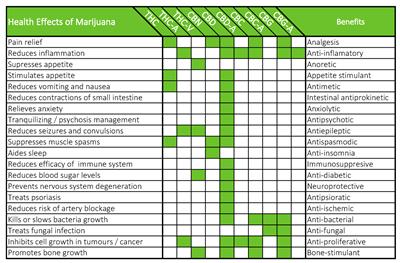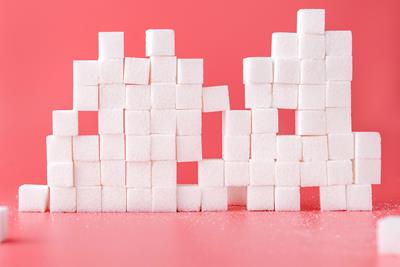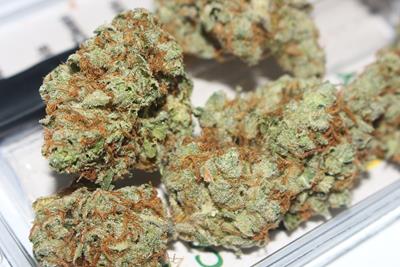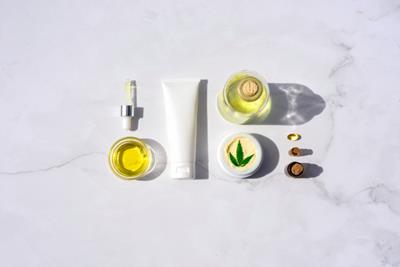
Thursday May 21, 2020
By Erin Hiatt
 Health/Science
Health/Science
Regardless of how many foodie trends like Paleo, Atkins, Keto, and low-carb diets come and go, one practically universally agreed upon dietary truth is that too much sugar is bad for you and can cause, among other conditions, weight gain, increase the risk of heart disease, diabetes, cancer, and acne. Even soft drink monolith Coca-Cola has rolled out cans of their beverages in smaller serving sizes in a response to consumer demand for healthier choices.
Cannabis-infused sweet treats are no different, especially since edibles, without the proper balance of sugar and fat can taste, well, weedy. Even though Americans are making more health conscious choices, like cutting back on unhealthy foods and exercising more, diagnoses of Type II diabetes have risen astronomically – from 108 million in 1980 to 422 million in 2014. This has prompted the rise of artificial sweeteners, and some of them are making their way into cannabis edibles.
What’s the Deal with Artificial Sweeteners?
Welcome to the land of artificial sweeteners. Many of the names will be familiar: Equal, NutraSweet, Splenda, Sweet & Low, and so many more, all chemically concocted to be anywhere from 200 to 20,000 times sweeter than real sugar. These artificial sweeteners have received GRAS (Generally Recognized as Safe) status from the FDA, but the verdict, according to the research, is still out.

Dietitians from the Cleveland Clinic came out very strongly against using artificial sweeteners of any kind. Without mincing words, one dietitian said, “Sugar and artificial sweeteners are addictive and will hijack your health and metabolism,” while another said, “The worst of the worst is aspartame, which caused cancer in three independent animal studies. I steer clear of any sweetener made in a lab.”
However, despite the wariness from dietitians, there is no conclusive research as to whether artificial sweeteners can cause weight gain, disrupt gut health, create metabolic syndrome (conditions that occur together that increase the risk of heart disease, stroke, and Type 2 diabetes, including high blood pressure, high blood sugar, and excess fat around the waist), give you diabetes, or even cancer. Here’s what we know so far:
Info About Artificial Sweeteners:
- Recent studies found that replacing sugary food and drinks with artificial sweeteners may reduce hunger and calories, and could help reduce weight
- For diabetics, artificial sweeteners may help reduce the sugar in their diet, though studies are very limited
- It is unlikely that artificial sweeteners will cause metabolic syndrome or cancer
- Using an artificial sweetener instead of real sugar may help dental health
It looks like artificial sweeteners are in the clear health-wise, yes? Nonetheless, let’s look at the other side of the coin.
Further Info on Artificial Sweeteners:
- Artificial sweeteners won’t satisfy that initial craving that drew you to that piece of cake in the first place, so you may eat more calories overall
- Consuming artificial sweeteners may prompt your pancreas to store fat, just like with natural sugar
- Some side effects of artificial sweeteners may include headaches, migraines, and dizziness
- And here’s a negative that sticks out: artificial sweeteners may disrupt gut bacteria, linked to increased risk of disease.
There is clearly not enough research to make a definitive statement on the matter, but with many edible companies on the market using natural products and sugars, should you even consider choosing artificially sweetened products?
How Artificial Sweeteners Interact with Humans
A recent study by researchers at Oregon State University showed that our guts host more than 10 trillion microbial cells from about 1,000 species of bacteria. When this system is in check, it can promote health. When it is not, it can create an imbalance called dysbiosis, commonly associated with detrimental health effects generally.

And for those with ailments like Crohn’s Disease, and irritable bowel syndrome (IBS) artificial sweeteners are out completely. Artificial sweeteners have been correlated with increased IBS symptoms like bloating, constipation and diarrhea. For those with Crohn’s Disease, Sucralose (Splenda) was associated with promoting bad gut bacteria and intestinal inflammation, while sugar alcohols like xylitol have been known to cause bloating, gas, cramping, and diarrhea.
Is good, old-fashioned sugar better for us than these Franken-sugars? Right now, no one knows for sure. So, what’s an edible lover to do? The best way to ensure your edible experience is up to par and meets any dietary restrictions is to make your own at home. If sugar and/or artificial sweeteners are of particular concern, there are several natural alternatives that not only add the sweet, but also have potential health benefits like applesauce, honey, maple syrup, and molasses.
What are your thoughts on the use of artificial sweeteners in edibles? Do you choose to avoid them? Why or why not? Share your thoughts in the comments below.







